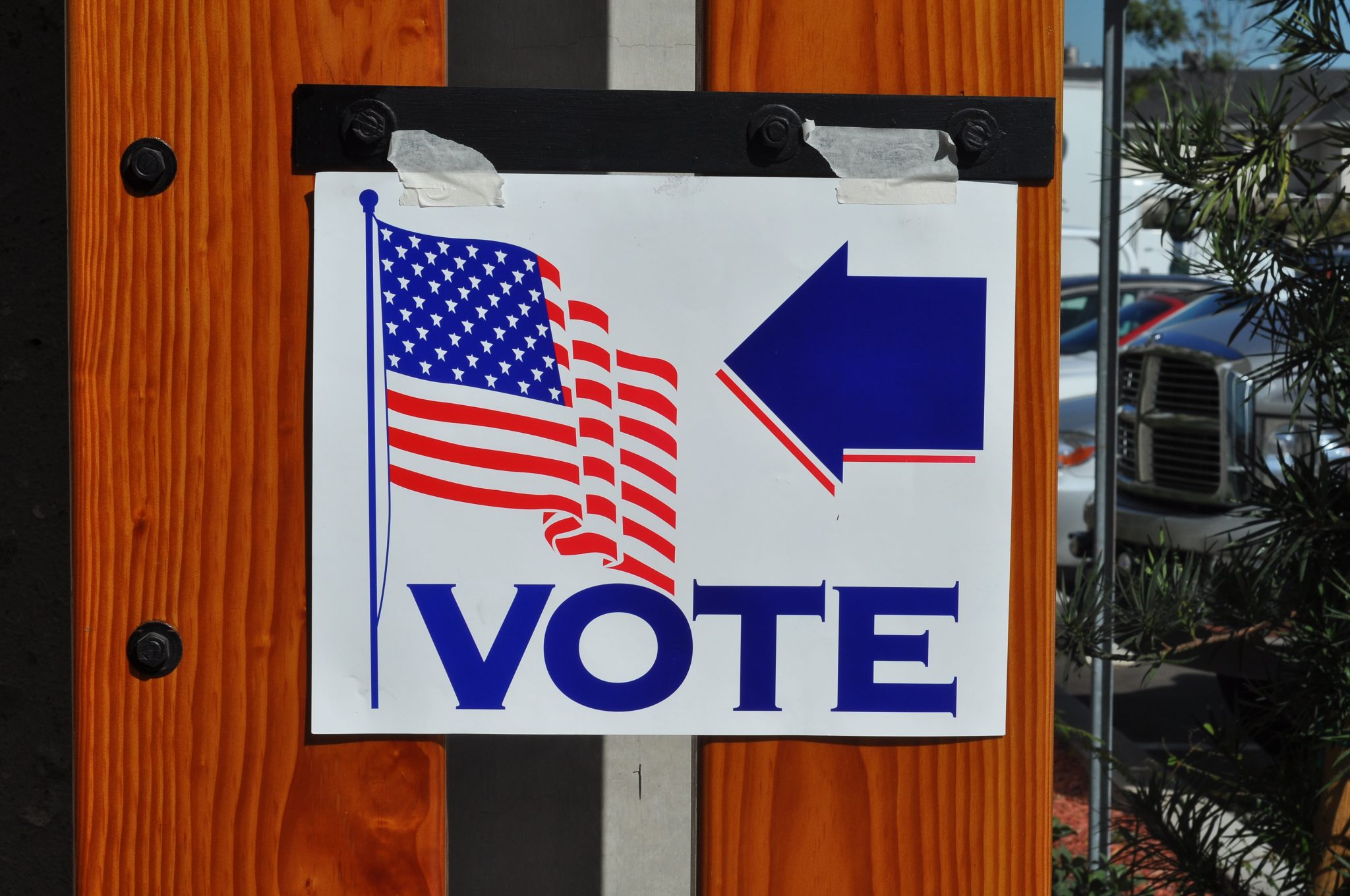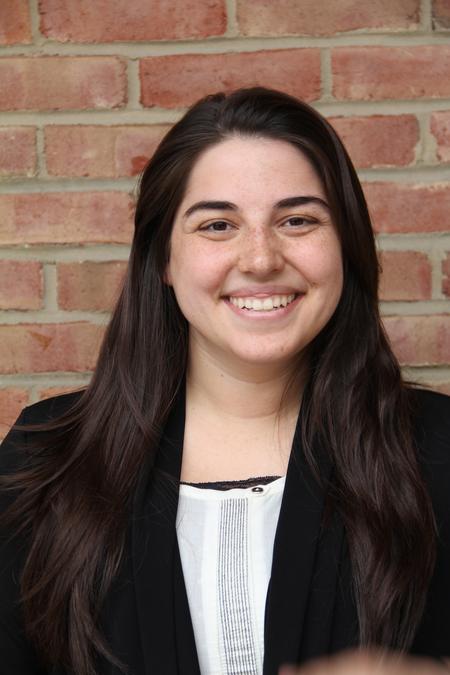Voters Not Politicians: The Pros [TRANSCRIPT]
Katie Fahey explains why people should vote “yes” and change how political districts are designed.

A proposal to change the way Michigan’s political maps are drawn could be on the November ballot.
The Voters Not Politicians proposal would establish an independent commission to redraw the boundaries of congressional and state legislative districts every 10 years.
The Board of State Canvassers approved the petition for the ballot, but a legal challenge is pending before the Michigan Supreme Court.

WDET’s Pat Batcheller spoke with Voters Not Politicians Executive Director Katie Fahey about the petition to change the Michigan Constitution.
Click on the audio player above to hear their conversation. You can find a transcript of it below.
Here’s some other WDET work on the gerrymandering issue:
Policy Meets the People: Introducing the Issue of Gerrymandering
WATCH HERE: A live one-hour show with an in-studio audience and guests
On DETROIT TODAY: Was Racism Involved in the Drawing of Michigan’s Congressional Districts?
A Podcast Playlist – Become a Gerrymandering Expert Just By Listening
MichMash: Here’s How You Can Influence The Drawing of District Lines in Michigan
Gerrymandering: Why It’s a Technology Issue [TRANSCRIPT]
Voters Not Politicians: The Cons [TRANSCRIPT]
Pat Batcheller: What is the mission of Voters Not Politicians?
Katie Fahey: We’re really all about restoring people’s rights to be heard in elections. We believe that voters should be choosing who their politicians are instead of politicians choosing who their voters are. And right now, in the current redistricting process, you have politicians that are looking out for themselves, working with lobbyists who are picking and choosing who they want their voters to be, when our democracy is based on our own representation and being able to elect that ourselves.
Batcheller: And how did you get involved?
Fahey: This actually started from a Facebook post that I made after the 2016 election. I said, “hey, I want to take on gerrymandering in Michigan. If you want to join me, let me know.” And now, it’s quickly evolved into over 5,000 active volunteers across the state and every part of Michigan, which is really exciting.
Batcheller: How has the current redistricting system affected you personally? In what way do you feel it has harmed you as a voter?
Fahey: I feel like right now in Michigan, we don’t have some of the basic things we rely on our government for. We have really poor infrastructure. We don’t have good roads. We don’t have clean water. We have a poor education system. And those are some really basic things that our government provides. And how that relates to redistricting, I think our politicians are not accountable to us because they’re not afraid of being unelected. They’re pretty much stacking the decks in their favor so they can guarantee election results. Most elections in Michigan right now are non-competitive. And it means that once politicians are elected, they aren’t worried about what the voters think. They’re looking out for whoever the special interest is who’s going to be telling them to focus on other things besides water, roads, education that we all rely on, that we hope our tax dollars are going towards.
Batcheller: How should our political boundaries be drawn, and who should be drawing them:
Fahey: For creating our policy, we actually held town halls and asked the people of Michigan that very question. We said, “here’s the status quo, how do you think it should change, who should draw these lines, how should they be drawn, and what are you looking for out of a redistricting system?” And the people of Michigan said they really wanted an open, transparent process and they wanted voters in charge instead of politicians, which is where our name comes from. We want voters to draw the lines, not politicians.
Batcheller: This calls for a new independent redistricting commission. How would that work?
Fahey: The commission would be comprised of four voters who identify themselves as Democrats, four who identify as Republicans, and five who are either independents or a third party. And these would be people from across the state, representative of what our state actually looks like, and who are not directly former partisan politicians or lobbyists. Citizens who want to be there to do the right thing. They’ll hold public hearings across the state, listening to how communities want to be represented, how they want their congressional district lines to be drawn.
Batcheller: Who would choose the members of the commission?
Fahey: It’s kind of a random application process. The Secretary of State will send out some applications. You could get one at your door. But if you’re a registered voter, you can also apply. And it’ll be a random process after that. People have to self-identify and meet some criteria to make sure they could be on it. But we’re just looking to make sure we have a fair process, and the best way to do that was to make it so that it’s an open opportunity to anybody who wanted to apply. We want a diversity in age range and economic income, and race and ethnicity.
Batcheller: Arizona created an independent citizens redistricting commission in 2000. There were a number of legal challenges to that. The U.S. Supreme Court ultimately ruled that the commission does have the authority to draw political boundaries. How is your proposal similar to or different from what Arizona has?
Fahey: In Arizona, they have a much smaller commission–five people. And also, they’re helped being chosen by current politicians. Ours is all done by voters. Politicians do get a couple of “preemptive strikes”, which means they can look at the applications, and if they think someone is lying, they can take ten percent of the applicants out. But beyond that, it’s people-driven. In Arizona, it’s two Democrats, two Republicans, and one independent. We have four Democrats, four Republicans, and five independents. And for our maps to be approved, you need two people from each of those “buckets” to agree. So, for any map, you have at least two Democrats, two Republicans, and two independents saying, “yes, we think this is the best way to go.”
Batcheller: The U.S. Constitution says state legislatures decide the manner of electing senators and representatives. This proposal would transfer that power to an independent commission. Are you worried it won’t pass constitutional muster?
Fahey: The exciting thing from the Arizona case is that the U.S. Supreme Court ruled that citizens have the power to draw the lines, that it’s OK for citizens to do that instead of the legislature. Because our legislature’s supposed to be made up of the people of the state, that makes it constitutional. We are not worried about that at all.
Batcheller: You do have some opposition. A committee was formed by a pair of Republicans who say the commission you envision wouldn’t have any idea what it’s doing, no prior experience. How do you respond?
Fahey: Our current legislature, due to term limits, they don’t have any experience doing this either. This is done once every ten years, and they hire consultants to come in and draw the lines, and lobbyists. We’re taking that process, and the commission will have support to hire their own consultants. You need the different parties to agree on who that’s going to be. It’s going to be a transparent process. And they’ll have the resources, the experts to do that. Except, the public is actually invited in, they’re able to be part of that process, and hear why the lines, why those computer algorithms, are being used to draw the lines.
Batcheller: Critics also say you’re biased because you’ve voted for Democrats in the past, and that this is an effort by Democrats to change the system in their favor? How do you respond to that?
Fahey: I say look the policy. It’s a completely fair system, a completely transparent system, and a system that looks extremely different from what the status quo is, which is exactly why we have opposition from the people who currently benefit from the redistricting process. I would also say for the record that I have voted for Republicans as well. Trying to attack individuals who are trying to make a change in their state is unfortunate, but is really a power grab. This (process) determines the majority of our elections in this state, how these lines are drawn, which a lot of us don’t really think about. So having a system that we can trust, that can be fair, transparent, impartial, and by the voters is going to have huge ramifications for our ability to have a system that’s not rigged.
Batcheller: Do you have Republicans involved in this effort?
Fahey: Yes, actually one of our board members is former Rep. Joe Schwarz, who ran for governor. From the very early stages, we had people from all political parties, including people who hadn’t voted before but wanted to. And part of feeling disenfranchised was this redistricting process.
Batcheller: What else would you like to say?
Fahey: I would say that this is a completely citizen-led movement. It wouldn’t exist if people didn’t show up to give their input on what they wanted to see, if they didn’t show up to help fund it, help gather signatures, and spread the word. The redistricting process only happens once every ten years following the Census. A lot of people don’t know about it, so we just have a lot of people we need to talk to between now and November to make sure they know what they’re voting on, and what an independent citizens redistricting commission can mean for Michigan. We want all voters to be informed.
